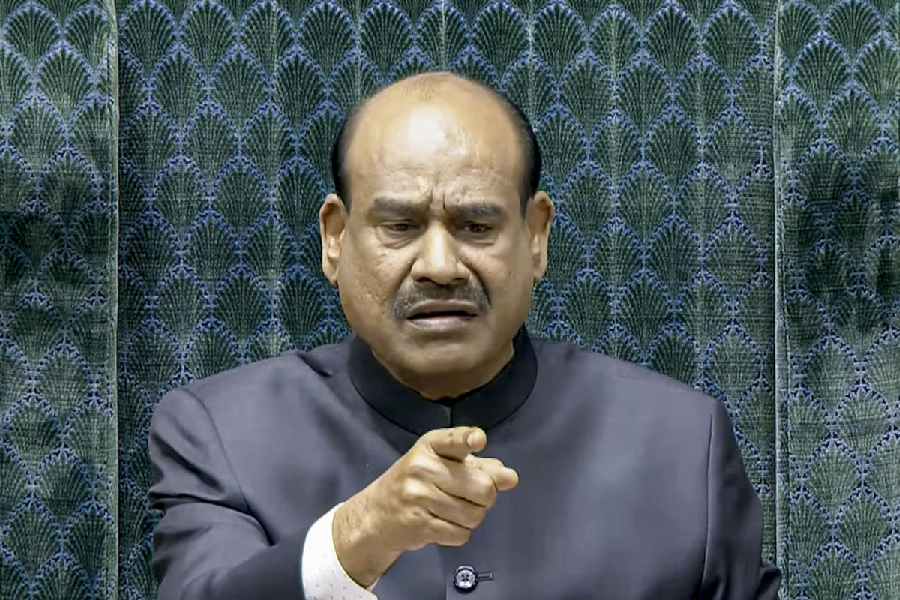Lucknow, Nov. 23: When BCom student Anjali Srivastava was diagnosed with bipolar disorder, her parents immediately knew how to “cure” her.
They waited till Anjali began responding to treatment and behaving normally, then married her off in a hurry without telling her in-laws a word about her condition.
Apparently, they believed that the best cure for any mental illness is marriage — a belief they share with the parents of 75 per cent of Indian women psychiatric patients, says Vishwas, a Delhi NGO that works with the mentally ill.
Scores of mentally ill women, therefore, are forced into marriage by their parents who keep the truth from their husbands, a practice that later leads to broken homes, shattered lives and abandoned children, psychiatrists say.
A reluctant Anjali, resident of Jaunpur near Varanasi, married an executive of a private company in December 2007. Left untreated because her in-laws knew nothing about her ailment, her violent mood swings returned in October last year, when she was five months pregnant.
A year of an acrimonious blame game between her family and her in-laws later, she is back with her parents, her husband having obtained a quick divorce from a court citing her mental illness.
Mental illness constitutes a ground for divorce under the Hindu Marriage Act of 1955, and courts issue the decrees without the presence of the woman if the husband shows a medical report and stresses how he was deceived into marriage. In such circumstances, the woman has no hope of receiving a proper alimony.
Dr Indira Sharma, professor of psychiatry at the Institute of Medical Sciences, Benaras Hindu University (BHU), said she had studied 21 women mental patients who were married off fraudulently during their treatment by their parents. According to her, 37 per cent of such women are driven to suicide.
Whether the parents truly believe that marriage is a cure or not, they certainly want to get rid of the girls. Many told Sharma that “aurat aur kisi ka amanat hai (women belong to their husbands, the parents are merely for safekeeping)”.
“After a few months of marriage, the woman’s mental condition becomes clear to the husband. Then comes a hell of hostility and name-calling. This devastates the woman,” says Dr Priti Singh who studied 22 female patients along with colleagues Dr Rajiv Gupta and Dr Rajiv Dogra at the Pandit Bhagwat Dayal Sharma Postgraduate Institute of Medical Sciences in Rohtak, Haryana.
Of them, 12 were from villages and 10 from cities in north India. Two somehow adjusted to family life and the rest were divorced or just dumped. Six are in hospital after being abandoned by their relatives too.
Last year, the Schizophrenia Research Foundation (SRF), Chennai, studied 75 mentally ill women who were separated or divorced.
“All but eight… lived in their parental homes with the onus of care being borne by their ageing parents,” the study says.
Only 16 had been divorced; the rest had been abandoned by their husbands. “The fathers looked after only six of the 26 children born to mentally ill women patients,” the study says. The remaining children are now in orphanages.
K. Subramanium, a social psychiatrist from Tamil Nadu, says the absence of alimony for mentally ill women is a hurdle to their rehabilitation. He said the women deserve alimony because it’s not they who deceived their husbands.
“What is needed is a state-managed programme that will offer some kind of financial security to such devastated women,” Singh said.
“Somebody must inform the guilty parents about the scale of misery the women undergo when they are married off through fraud,” said Dr Sharma.
Psychiatrists say there should be a campaign to make parents aware about mental disorders.










